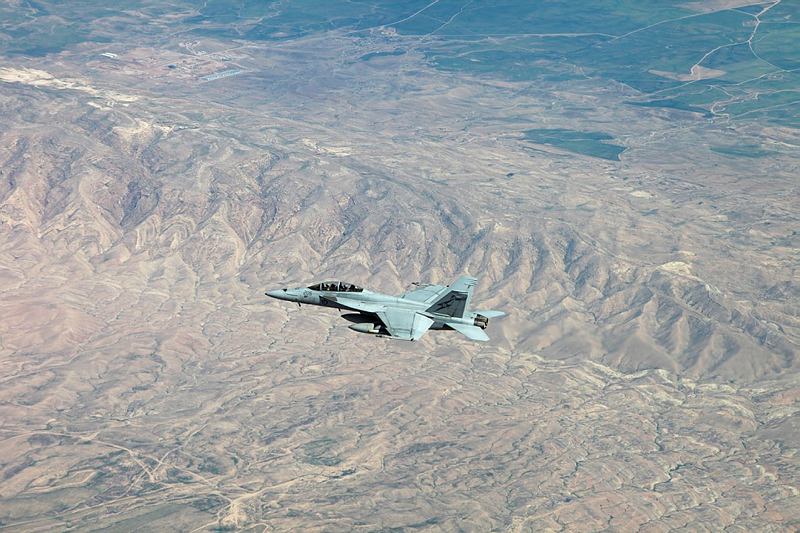ISIS: how a ‘direct’ strategy can ensure its defeat (part 2)
ISIS’ territorial hold represents a different kind of challenge from the amorphous decentralised threat presented by al Qaeda a decade ago. ISIS is vulnerable to an armed invasion of Iraq/Syria by a multinational coalition aiming to annihilate its command, control structure and militias, and remove the territorial reach of the caliphate. In short, ISIS’ territorial base is its center of gravity that must be relentlessly targeted.
Given that ISIS’ social media amplifies the apocalyptic symbolism of its territorial grasp, the psychological after-shock of their forcible removal would likely destroy the handy notion that God is on ISIS’ side—thereby strengthening the credibility of moderate Muslim voices that ISIS leaders are religious fanatics and interlopers.
This primarily kinetic approach must be accompanied by information operations aimed at relentless exploiting and amplifying the forcible unraveling of the ISIS territorial gains. The coalition must fight the ISIS social media campaign with one of its own. While moderate Muslim scholars should trumpet this as a sign of ‘God’s displeasure’, they and other influential online voices should emphasize ISIS atrocities against even Muslims who disagree with them. While kinetic force is the mainstay of a direct strategy, effective information operations requires that military power should be calibrated through adroit use of intelligence-led, surgical strikes especially in urban areas, so as to minimize civilian casualties as far as possible.
This is easier said than done, but worth the effort. Why? In the war of perceptions, excessive, indiscriminate, use of force by the Western coalition only feeds the potent ISIS social media narrative of a war on Islam— inadvertently enabling ISIS to radicalize and recruit even more manpower to the Iraq/Syria theatre as well as attracting lone wolves in the target countries of the coalition themselves.
A third element of a western direct strategy against ISIS is diplomacy. The Western coalition should impress upon Israel, Iran and Saudi Arabia that they should set aside their traditional rivalries and focus diplomatic and related efforts on destroying a common enemy in ISIS. To this end the international community should prioritize working towards establishing enlightened, moderate, broad-based governments in Syria and Iraq with equitable representation for Sunni, Shia and minority groups, in an attempt to ‘drain the swamp’ that sustains ISIS.
In fact a regional coalition that succeeds in destroying ISIS may well generate additional peace dividends, in terms of spurring real rapprochement within the various ‘conflict dyads’ that have long characterized the region: Israel and the Palestinians; Saudi Arabia and Iran; the US and Iran.‘’ A fourth, related element of the strategy is economic: socio-economic deficits, poor governance and the lack of effective rule of law form an enabling environment that empowers virulent mobilizing ideologies such as Salafi jihadism. Hence a Marshall Plan-like effort to rebuild Iraq, Syria and affected neighbors like Libya needs to be part of the mix.
Finally, as far as Southeast Asia and Australia are concerned, domestic security policy should comprise three key sub-elements: first, in terms of law enforcement, measures need to be put in place to raise the costs of travelling to Syria and Iraq, via widely publicized deterrent sentences for returnees and facilitators. Second, community engagement efforts by credible scholars, ‘formers’ and civil leaders must help constituencies to build ‘mental firewalls’ against the religiously and culturally supremacist ideology of ISIS, together with a better understanding of behavioral and attitudinal indicators that lead to violent extremism. Finally in the Southeast Asian context especially, regional hotspots such as Mindanao and Poso in eastern Indonesia, need to be closely monitored and better overall governance gradually introduced, with a view to draining the swamp that fuels the virulent narratives that sustain ISIS.
Defeating ISIS will not be a walk in the park. It represents the latest resilient mutation of the al Qaeda ‘super-organism’. Implementing a direct strategy involving primarily kinetic elements, complemented by the strands of information operations, diplomacy and economic assistance – all applied to the Iraq/Syria zone, and supported by multi-tiered domestic strands customized to various pockets of vulnerability within the Western-led coalition including Southeast Asia and Australia, will require political will and strategic co-ordination of the highest order. In particular: would the current or more likely the next US administration be willing and able to expend the political and strategic capital on constructing and leading another coalition of the willing to destroy the physical and strategically symbolic ISIS entity?
One thing seems increasingly clear: if the international community fails to muster the requisite commitment to pursue a direct strategy of this kind, the consequences for free and tolerant multi-cultural societies, not just in the Middle East but in Southeast Asia, Australia and elsewhere, could be be far-reaching.
